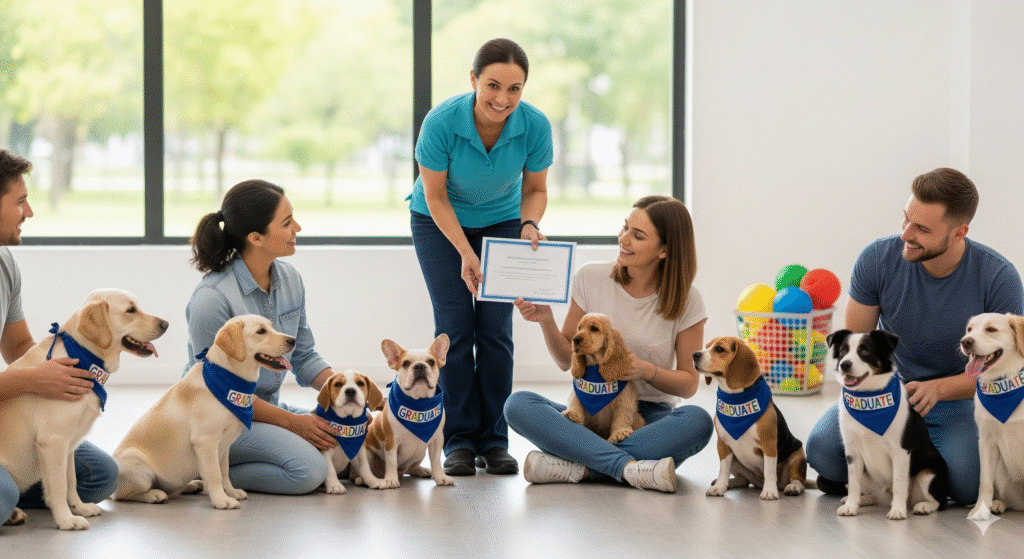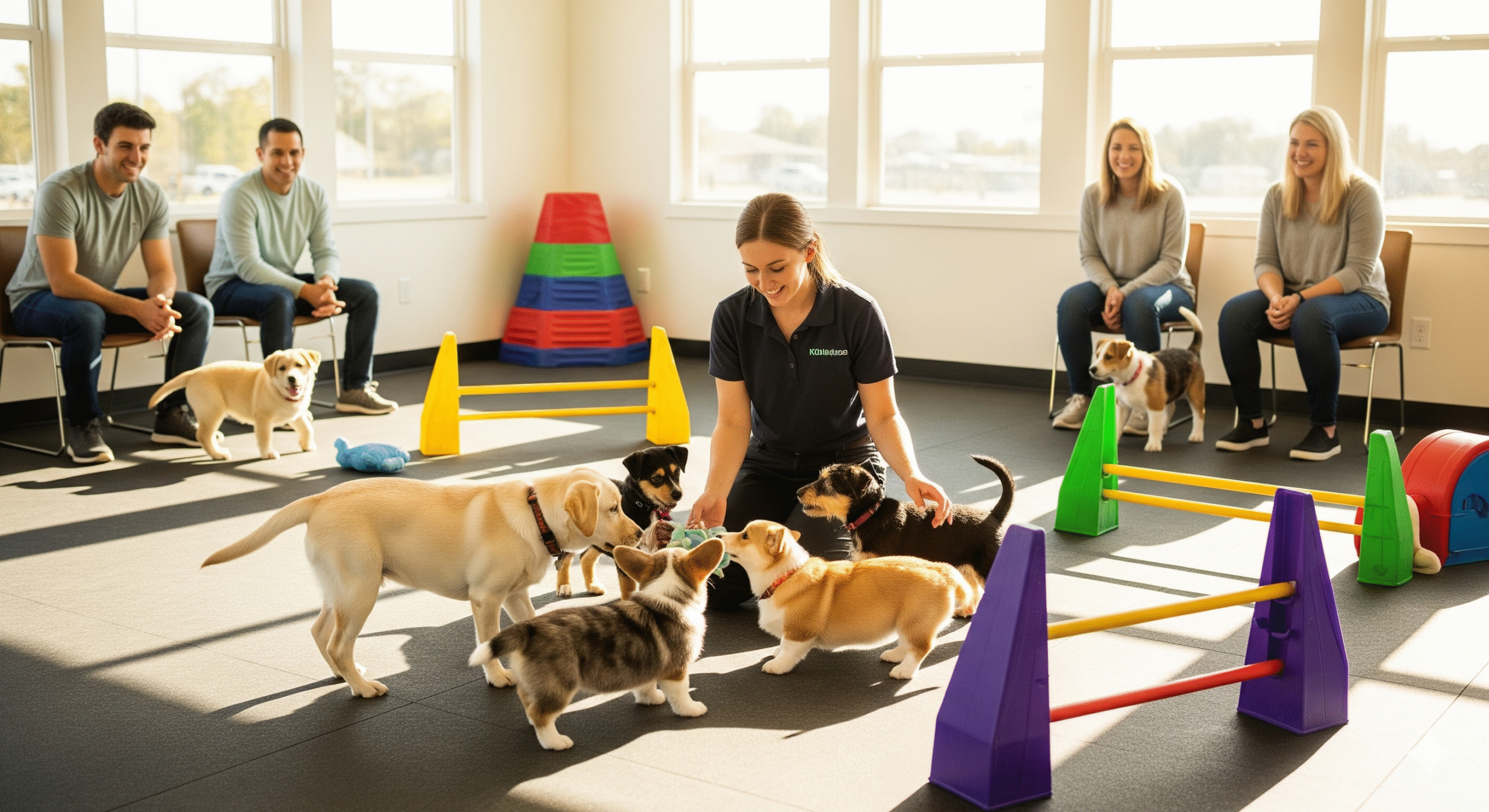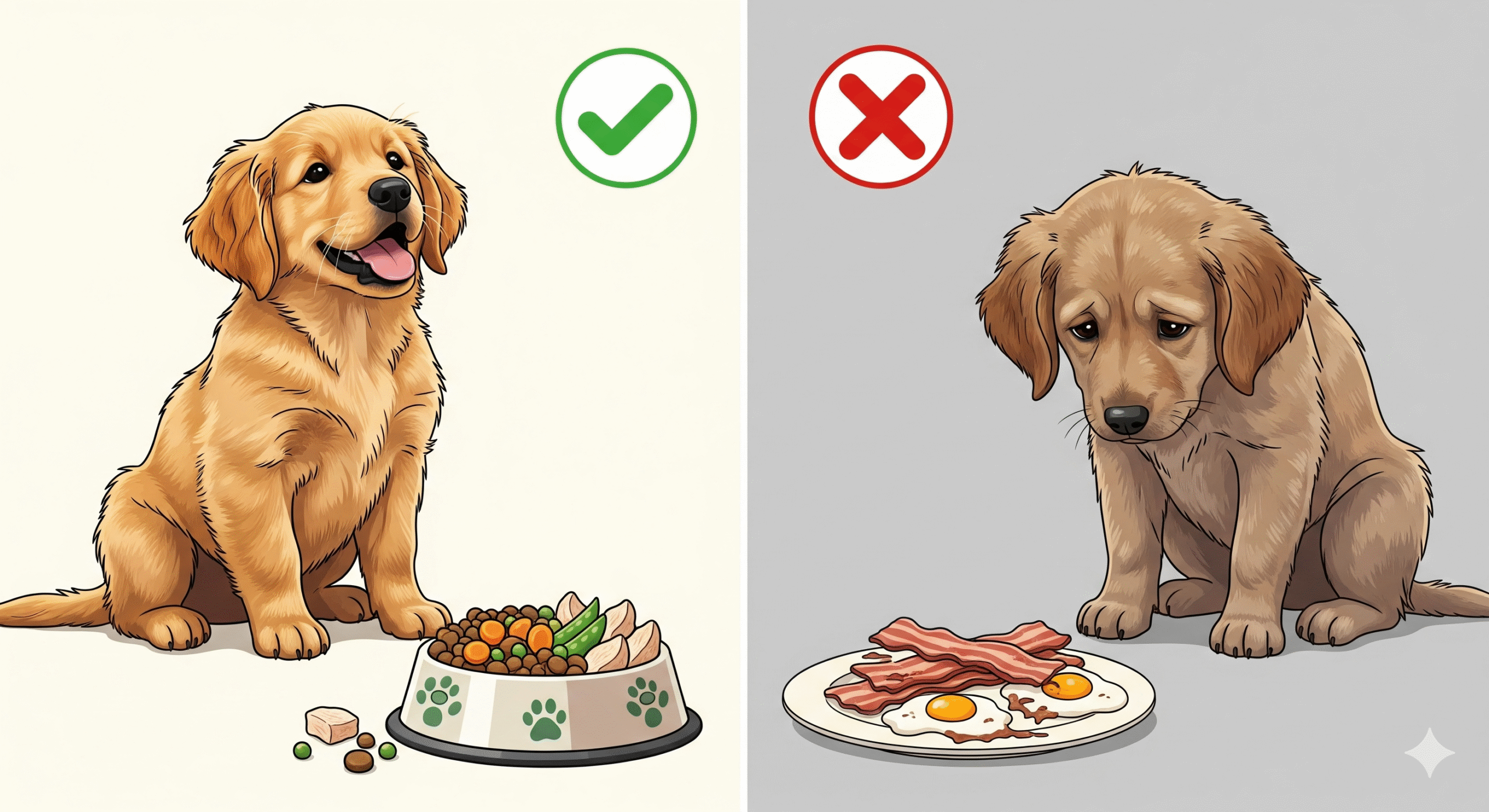Bringing a new puppy home is a whirlwind of joy, chewed shoes, and a million questions. One of the biggest decisions you’ll face is whether to enroll in puppy socialization classes. You’ve likely heard they’re important, but are they truly worth the investment of your time and money? 🤔
The short answer is a resounding yes—when done correctly. However, not all classes are created equal. This comprehensive guide will break down the immense benefits, potential drawbacks, and exactly what to look for in a high-quality class. We’ll provide the expert insights you need to decide if this crucial step is right for you and your furry family member.
What Exactly Are Puppy Socialization Classes? 🏫
Puppy socialization classes are structured, professionally supervised group sessions designed for puppies typically between 8 and 16 weeks of age. This period is a critical developmental window known as the socialization period, where puppies are most receptive to new experiences and forming positive associations.
Unlike basic obedience classes that focus on commands like “sit” and “stay,” the primary goals of socialization classes are:
- Safe Interaction: Allowing puppies to play and interact with other puppies of similar size and age in a controlled environment.
- Positive Exposure: Introducing puppies to a variety of sights, sounds, surfaces, and people in a positive way.
- Owner Education: Teaching you how to read your puppy’s body language, manage play, and continue socialization at home.
The Critical Importance of Socialization: It’s More Than Just Play 🧠
Socialization isn’t just about making your puppy friendly. It’s about building their confidence and preventing serious behavioral problems down the road.
- Prevents Fear and Aggression: A poorly socialized puppy is more likely to become a fearful or reactive adult dog. Fear is the most common cause of aggression. Positive experiences during the socialization period help puppies learn that the world is a safe and interesting place.
- Builds a Resilient Dog: Well-socialized puppies are better equipped to handle novel situations—like a visit to the vet, meeting a child, or hearing a loud truck—without becoming stressed or fearful.
- Teaches Bite Inhibition: Playing with other puppies is the #1 way they learn to control the force of their bite. If one puppy bites too hard, the other will yelp and stop playing. This is a lesson humans cannot effectively teach on their own.
Expert Insight: “Socialization isn’t about throwing your puppy into a crowd of dogs and hoping for the best. It’s about curating positive experiences. A good class does exactly that, setting a foundation for a dog that can cope with life rather than fear it.” – Dr. Sophia Lin, Veterinary Behaviorist
The Pros: Why Puppy Socialization Classes Are Worth It ✅
The benefits of a well-run class are unparalleled and can have a lifelong impact.
- 1. Safe, Supervised Play: This is the biggest advantage. Reputable classes require all puppies to be up-to-date on vaccinations appropriate for their age, creating a much safer environment than a dog park. A trained instructor can intervene if play gets too rough and ensure positive interactions.
- 2. Controlled Environment: Classes introduce new stimuli (like umbrellas, noise makers, or different floor textures) in a gradual, controlled way. This prevents the puppy from becoming overwhelmed.
- 3. Professional Guidance: You learn to understand canine body language. Is that play bow an invitation to play, or is that tucked tail a sign of stress? An instructor can point this out in real-time, making you a more informed owner.
- 4. Foundation for Training: While the focus is socialization, most classes incorporate basic impulse control and obedience fundamentals like “watch me,” name recognition, and loose-leash walking around distractions.
- 5. Socialization for You: It’s a great place to connect with other new puppy owners, share stories, and get support!
The Cons & Potential Drawbacks to Consider ❌
While the pros heavily outweigh the cons, it’s important to be aware of potential pitfalls.
- 1. Poorly Run Classes: A bad class led by an inexperienced trainer can do more harm than good. Overwhelming a puppy or allowing inappropriate play can create negative associations and set back your progress.
- 2. Cost: Quality classes are an investment, often ranging from $100 to $200 for a multi-week session.
- 3. Risk of Illness: While vaccination policies mitigate risk, any place where puppies congregate carries a small inherent risk of transmitting parasites or diseases like kennel cough. A reputable class will have strict hygiene protocols.
How to Choose the RIGHT Puppy Socialization Class 🔍
Your experience hinges entirely on choosing a high-quality class. Here’s what to look for:
- Vaccination Requirements: 🩺 A reputable class will require proof of first vaccinations (usually DHPP) and a negative fecal exam. Avoid any class that allows puppies without any vaccines.
- Small Class Size: Look for a puppy-to-trainer ratio of no more than 6:1. This ensures each puppy and owner gets individual attention.
- Trainer Credentials: The instructor should be a certified professional (e.g., CPDT-KA, KPA-CTP) with experience in puppy development and positive reinforcement methods.
- Clean, Safe Environment: The facility should be clean, spacious, and free of hazards.
- Puppy Separation: Classes should be divided by size and play style (e.g., small/medium puppies vs. large breed puppies) to prevent intimidation and injury.
- Positive Reinforcement Philosophy: The trainer should use treats, toys, and praise. Avoid any class that uses fear-based methods like choke chains, prong collars, or yelling.
Questions to Ask When You Call:
- “What are your vaccination requirements?”
- “What is the maximum number of puppies in a class?”
- “Can you describe your training methods?”
- “What is your protocol if a puppy becomes overwhelmed?”
What to Expect in a Typical Class 📝
A good class will be a mix of structured activities and supervised free play:
- Supervised Play Sessions: Short periods of off-leash play with other puppies.
- Handling Exercises: Getting puppies comfortable with being touched on their paws, ears, and mouth—a huge help for future vet and groomer visits.
- Confidence Building: Navigating small agility obstacles, walking on novel surfaces (bubble wrap, metal grates), and encountering new objects.
- Basic Skills: Short, fun training sessions on name recognition, sit, and coming when called.
- Problem-Solving: Time for Q&A with the trainer about biting, house training, and other common puppy challenges.
The Verdict: Are They Worth It? 💡
For the vast majority of puppy owners, yes, a high-quality puppy socialization class is absolutely worth it. The lifelong benefits of a well-adjusted, confident, and friendly dog far outweigh the cost and time commitment. It is one of the single best investments you can make in your dog’s future behavioral health.
It is not, however, a substitute for your own work. Think of class as guided practice. The real work happens when you take the lessons home and continue to expose your puppy to the world in a positive way every single day.
The Bottom Line: An Investment in a Lifetime of Happiness ❤️
Puppy socialization classes provide an irreplaceable foundation. They equip you with the knowledge and skills to guide your puppy through a critical stage of development, preventing problems that are far more difficult and expensive to fix in an adult dog. By choosing a reputable class, you’re not just teaching your puppy to be social—you’re ensuring they grow into a calm, confident, and joyful companion for years to come.
Have you taken your puppy to a socialization class? What was your experience? Share your stories and questions in the comments below to help other pet parents decide! 👇

…Between 8 and 16 weeks is the most critical socialization period. During this time, you must introduce them to new experiences, but interactions with other canines are especially important for their development. To ensure these meetings are safe and productive, it’s vital to follow the correct steps. Our guide details exactly how to socialize a puppy with other dogs to build their confidence.






